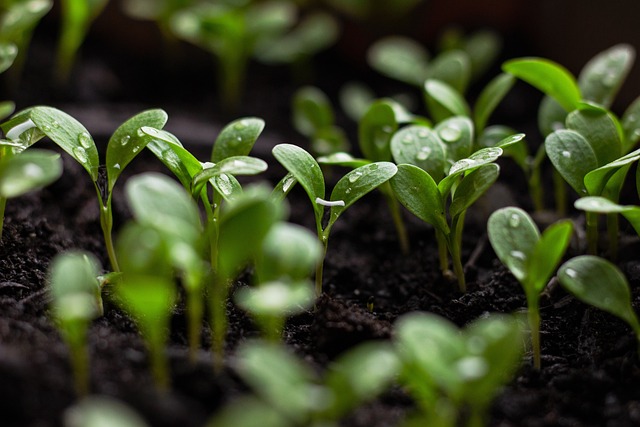Een duurzame levensstijl is een belangrijke factor in de bescherming van het milieu en het behoud van onze planeet. Een dergelijke levensstijl kan bijdragen tot het behoud van natuurlijke hulpbronnen en de bestrijding van klimaatverandering. Duurzaamheid betekent bewust en respectvol omgaan met de natuur en ook rekening houden met de sociale en economische aspecten. Door duurzaam te leven kunnen we onze ecologische voetafdruk verkleinen en bijdragen aan een leefbare toekomst voor onszelf en toekomstige generaties.
Voeding
Een duurzame voeding wordt gekenmerkt door regionaal en seizoensgebonden voedsel. Dit vermijdt lange transportroutes, vermindert de uitstoot van broeikasgassen en ondersteunt de lokale landbouw. Een vegetarisch of veganistisch dieet kan ook helpen om de koolstofvoetafdruk te verkleinen. Vleesconsumptie vervuilt het milieu door de productie van broeikasgassen, het kappen van bossen en de grote vraag naar water. Minder vlees eten is daarom een belangrijke stap naar een duurzaam voedingspatroon.
Consumentengedrag
Ons consumentengedrag heeft een grote invloed op het milieu. Een duurzame levensstijl omvat daarom ook het vermijden van wegwerpproducten en het kiezen van duurzame alternatieven. Hieronder vallen bijvoorbeeld herbruikbare drinkflessen, herbruikbare bekers en stoffen tassen. Ook het kopen van duurzame producten zoals fair trade producten of biologisch voedsel kan een positief effect hebben. Tweedehands kleding en meubels zijn een andere manier om je eigen consumptie duurzamer te maken.
Mobiliteit
Mobiliteit is een belangrijke factor in het dagelijks leven. Duurzame mobiliteit kan worden bereikt door gebruik te maken van de fiets of het openbaar vervoer. Alternatieve aandrijvingen zoals elektrische auto’s zijn ook een manier om klimaatvriendelijker te reizen. Wie afhankelijk is van de auto moet carpoolen en aandacht besteden aan brandstofbesparend rijden.
Energie
Energiebesparing in het huishouden is een belangrijk aspect van een duurzame levensstijl. Het energieverbruik kan worden verminderd door elektriciteit in het huishouden te besparen, hernieuwbare energiebronnen zoals zonne- of windenergie te gebruiken en energiebesparende apparaten te kopen. Ook moet men zich bewust worden van het eigen energieverbruik om onnodig elektriciteitsverbruik te voorkomen.
Wonen
Duurzaam bouwen en wonen kan door energiebesparing, het gebruik van natuurlijke bouwmaterialen en goede warmte-isolatie. Dit kan stookkosten besparen en de CO2-uitstoot verminderen. Ook bewustwording van het eigen waterverbruik en het vermijden van afval in het huishouden zijn belangrijke aspecten van duurzaam wonen.
Vrije tijd
Ook in de vrije tijd zijn er mogelijkheden voor een duurzame levensstijl. Denk hierbij bijvoorbeeld aan duurzaam toerisme, buitenactiviteiten en liefdadigheidsactiviteiten. Duurzaam toerisme betekent aandacht voor ecologische en sociale aspecten bij het kiezen van een vakantiebestemming en accommodatie. Ook tijdens het wandelen, fietsen of kamperen kan men erop letten geen sporen in de natuur achter te laten en aandacht besteden aan milieuvriendelijk gedrag.
Afval vermijden en recycleren
Afval vermijden en afval recycleren zijn ook belangrijke aspecten van een duurzame levensstijl. Door consequent afval te scheiden en verpakkingsafval te vermijden, kunt u ertoe bijdragen dat er minder afval in de natuur terechtkomt. Het recyclen van papier, glas, metaal en plastic is een andere belangrijke stap in het behoud van natuurlijke hulpbronnen.
Conclusie
Een duurzame levensstijl is een belangrijke stap om het milieu te beschermen en de eigen ecologische voetafdruk te verkleinen. Door een bewust voedingspatroon, milieuvriendelijk consumentengedrag, duurzame mobiliteit en huisvesting, en het vermijden en recyclen van afval kunnen we bijdragen aan het behoud van natuurlijke hulpbronnen en het tegengaan van klimaatverandering. Ook in onze vrije tijd zijn er mogelijkheden om milieubewust te handelen. Een duurzame levensstijl kan zo bijdragen tot een leefbare toekomst voor onszelf en de komende generaties.
